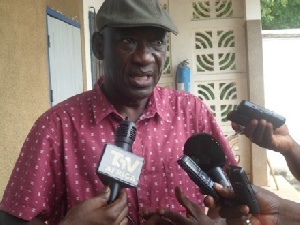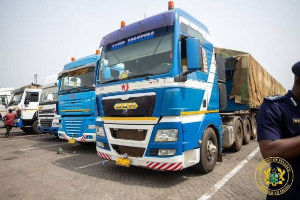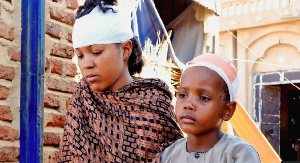The Savanna Accelerated Development Authority (SADA), has recently been rocked with all sorts of allegations, but its Chief Executive Officer, Alhaji Gilbert Seidu Iddi, has assured the public that his outfit could still achieve its target.
According to him, it is the vision of SADA to create a “forested and Green North by 2030, doubling the incomes of Northern Ghanaians and reducing poverty in the Northern Savannah Ecological Belt to less than 20% within 20 years”.
That vision, according him, was “very much on course per progress made so far”.
One ambitious project SADA has decided to embark on is the investment in solar energy to add some megawatts of power to the insufficient national grid.
Alhaji Iddi also disclosed that SADA was expecting a bumper harvest in butternut squash next year to meet the growing demand of the produce in Europe.
In 2012, according to Alhaji Iddi, SADA distributed 270 tractors to farmers in the catchment area.
He further disclosed that, the capital-intensive Sisili-Kulpawn water management project would impact positively on the lives of the indigenes when completed.
The Parliament of Ghana in July 2010 passed into law, the Savannah Accelerated Development Authority (SADA) bill which was seen as an affirmative action to seal the development vacuum between the south and the north.
The 20-year strategy seeks to generate accelerated development in the savannah (three northern regions and parts of the Volta and Brong Ahafo Regions) to reduce poverty and to generate growth.
SADA Background
The late President John Evans Atta Mills, in 2011, appointed Alhaji Iddi as the Chief Executive Officer (CEO) of the Savanna Accelerated Development Authority (SADA).
The former president made the appointment on the advice of the SADA Governing Board and upon the recommendation of the Public Services Commission after Alhaji Seidu Iddi excelled in a competitive interview.
In more than 15 years, he served in various senior management positions of international development agencies, including successfully managing an extensive agricultural programme funded by the International Fund for Agricultural Development (IFAD).
He was until his appointment, a senior lecturer at the University for Development Studies (UDS) in Tamale.
He started his working career in 1977 after obtaining his first degree at KNUST, as a Cotton Production Officer with the defunct Cotton Development Board, where he worked until 1987 rising to the rank of Senior Cotton Production/ Research Officer.
In that capacity, he drew and implemented agricultural extension programs, provided extension services to cotton farmers, marketed farmers’ produce, and managed human resource and staff welfare.
From 1987 to 1992 he worked with a multi-lateral donor Agency: International Fund for Agricultural Development (IFAD) Government of Ghana (GOG) sponsored Smallholder Rehabilitation and Development Program as Agricultural Extension Co-ordinator and second-in-command to the then Program Co-ordinator.
On the political front, Alhaji Iddi’s training and background in agriculture came in handy when he served the Government of Ghana as Deputy Regional Minister for Agriculture in the Northern Region from 1993 to 1996. His duties included agricultural policy formulation, interpretation and the supervision of its implementation in the Northern Region.
He played a leading role in rehabilitating the dying rice industry, which used to be the main source of wealth of rich northern farmers, through the introduction of water harvesting technologies, pest management and control of “bushfire.” In Collaboration with colleague Deputy Regional Ministers for Agriculture in the country, they brought to an end the perennial food shortages at the tail end of every cropping season, popularly referred to as “the hunger gap.”
Alhaji Iddi was elevated to a substantive Regional Minister and served in the Northern and Volta Regions between 1996 and 2000, providing strategic direction for addressing development and security issues as well as co-ordinating activities of MDAs in the two regions.
SADA is resolved to achieve its target of afforestation in its catchment areas.
Business News of Thursday, 25 July 2013
Source: The New Crusading Guide













